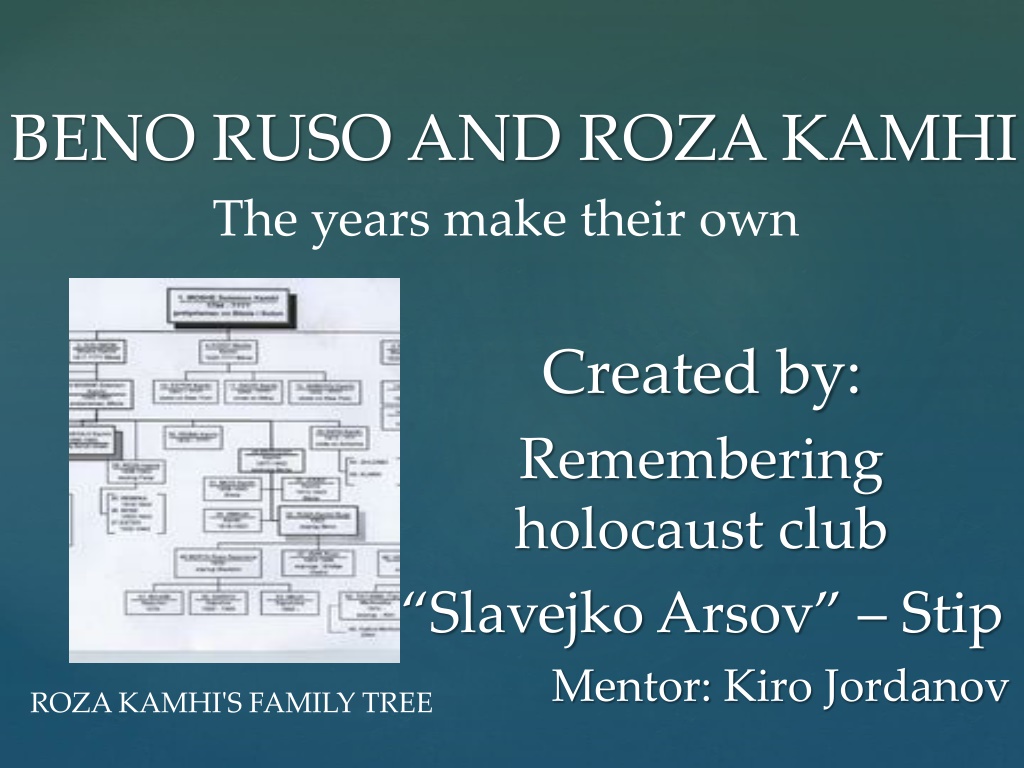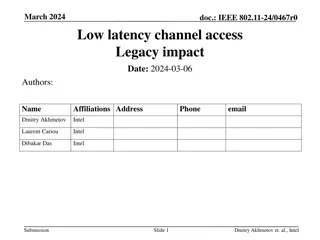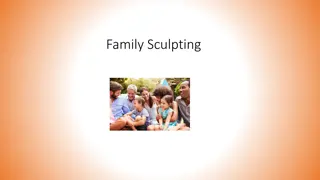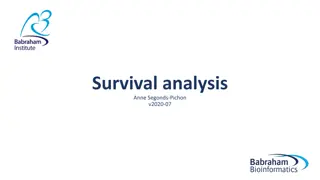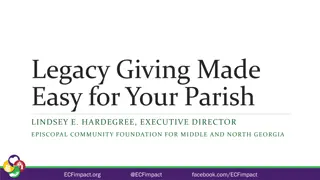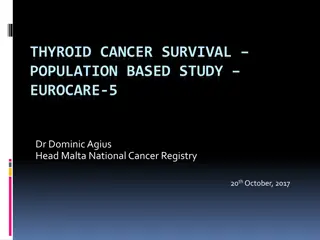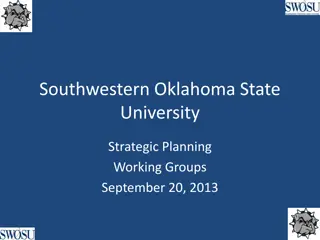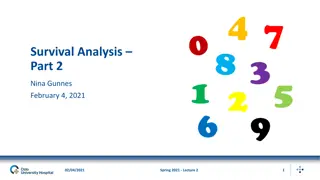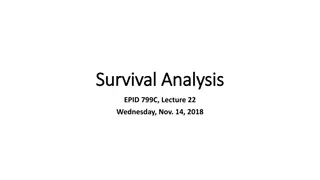Beno Ruso and Roza Kamhi: A Story of Love, Survival, and Family Legacy
Beno Ruso and Roza Kamhi, two individuals who fell in love amidst the tragedies of World War II, symbolize resilience and courage. Their journey from facing the horrors of the Holocaust to building a family rooted in strength and unity is a testament to the human spirit. This narrative intertwines love, history, and legacy, bridging past and present through the generations.
Download Presentation

Please find below an Image/Link to download the presentation.
The content on the website is provided AS IS for your information and personal use only. It may not be sold, licensed, or shared on other websites without obtaining consent from the author. Download presentation by click this link. If you encounter any issues during the download, it is possible that the publisher has removed the file from their server.
E N D
Presentation Transcript
BENO RUSO AND ROZA KAMHI The years make their own Created by: Remembering holocaust club Slavejko Arsov Stip Mentor: Kiro Jordanov { ROZA KAMHI'S FAMILY TREE
Beno and Roza fell in love in the 1930s and were married in 1946. In between, the vast majority of Macedonia's Jews-more than 7,400-were deported to Treblinka. Noone returned alive. Beno and Roza, and several of their teenage friends, joined the partisans, grabbed rifles and fought back. When the war ended in 1945, Beno was 24- years-old. He was a general.
This story takes us all the way to 2011- through the death of Tito, the break-up of Yugoslavia, and the opening of the largest Holocaust Museum in southern Europe. That makes this a great film of Holocaust and contemporary history
Beno Ruso lives in a large apartment in a tree-lined section of Skopje. This apartment was built for him by the Yugoslav National Army in the 1970 s. Once his children grew up it was too big for him and his wife, Roza, so they divided it in two. Now, his daughter lives next door with her husband and children. Despite the separate entrances it is obvious that he is very close to his family next door. During our interview, his granddaughters were coming in and out looking for milk, lunch and their grandfather s attention. The stray dog that the granddaughters have taken in also finds refugee and attention in Beno s side of the house. His paternal grandfather, Benjamin Ruso, came from the Crimea, Russia. I ask myself why the last name Ruso we are not ancestors of [related to] Jean Jacques Rousseau, he is from the West. Where are they [the ancestors] from? From Russia, Ruso. There were some people in Bitola who came from Russia and they had that nickname. Not a lot but some and they kept that name. [The nicknames became official family names.] There were two or three other families in Bitola named Ruso that we were not related to.
Mordehaj used to come to our house and we went to his. He had his own big shop in the Jewish quarter. He was a mechanic, that is the what villagers called a brewery owner. But they didn t brew beer, there was no beer then, rather wine. He sold wine. He didn t make wine he bought it and sold it retail. He didn t have anything in his place other than alcohol wine and roasted chickpeas for snacks. A person ordered a shot of alcohol and in order to prevent the brandy from going to his head too quickly he was given a plate of chickpeas to snack on. Mordehaj had a big house and a big family. BENO RUSO AND FRIENDS His grandfather was wealthy. He sold leather and coal. Although he was illiterate he was a very capable trader. While he was alive he had a lot of property, including a farm he bought from a Turk. How he got it I don t know. He was a wholesale coal peddler. At that time this was an item which one could not live without. How could one cook without it? There were braziers which ran on coal. Coal was used all the time except during the winter for the wood burning stoves. All the cooking during the summer was done on coal. BENO RUSO AS A PALLBEARER AT MARSHAL BROZ TITO'S FUNERAL
In his office he had a table where he kept sticks. He had one stick for each person he did business with. On each stick he would make a tally, a record, with a knife. He knew Ladino, perfect Turkish and Serbian. He built a house with a big yard, stables, cows, horses. My whole family: father, mother and us children, lived with our grandfather in this house that he had built. My grandfather was very hardworking businessman. He was a good head of the household. However, after his grandfather s death and the wars World War I, Balkan Wars see First Balkan War and Second Balkan War, everything changed in our family PEPO HASON, BENO RUSO AND VIKTOR PARDO ON THE SREMSKI FRONT NIKO PARDO AND OTHERS FROM HASHOMER HATZAIR BENO RUSO AND FRIENDS
BENO RUSO'S BROTHERS-IN-LAW, MOIS AND PEPO KAMHI, AND FRIENDS FROM HASHOMER HATZAIR BENO RUSO'S WIFE'S BROTHER, PEPO KAMHI AND AVRAM SADIKARIO BENO RUSO'S WIFE'S BROTHER MOIS AND HIS FRIENDS IN ISRAEL My grandfather had a white beard down to his belly. He didn t dress in modern dress. He wore a long sleeved robe called a saju . He was a corpulent man; he was well developed. He had a round face, white hair, a long beard, impressive looking. The saju had large pockets on both sides cut on an angle from under the armpit to the hip. It was like a bag. When he came for lunch or at night it was always interesting to see all the things that he took out of his pockets.
Roza Kamhi, 82, lives in a big apartment in Skopje which she shares with her husband and her daughter's family. Around her apartment are a wealth of souvenirs and art from a long life. Amongst these items is a shelf with pictures of her living family members: her husband, daughters, and grandchildren. On the other shelf are pictures of the dead: her son, her grandchild who died of heart problems at a young age and a signed photo of Marshal Broz Tito in full military uniform. Roza's husband, Beno Ruso, a retired general, served under the former Yugoslav leader, who remains a respected presence in their lives. Shortly after learning that her son died in a climbing accident in 1988 Roza became severely visually impaired ROZA KAMHI AND FANA MAJKAL ROZA KAMHI'S WEDDING PICTURE
My father was a wheat trader and was considered rich, since he had two shops and owned a house. But slowly, slowly the income from trading dried up and in the end we lived off the rents. This was not L-rd knows what. The economic situation declined for all the Jews in Bitola at that time. My dad knew Turkish because he came into contact with traders and people from villages. As a trader, my father had contact with peasants, but he didn't socialize with non-Jews. My mother didn't know Macedonian, so it would have been hard for them to socialize In 1903 my father, Mentesh Kamhi, participated in the progressive Ilinden Uprising with his brother, Rafael [Mose Kamhi] . He helped his brother, who was one of the instigators of the uprising for the liberation of Macedonia from the Turks. My father was wounded in the upper leg by a knife, but the wound healed. This is a story I heard about my father. Participation in this revolution was not all that important among Jews. It was not as significant, or massive a movement, as our involvement in the people's liberation battle during World War II. [see Jewish participation in the National People's Army] ROZA KAMHI WITH COLLEAGUES FROM THE MINISTRY OF FINANCE ROZA KAMHI WITH FRIENDS FROM THE PARTY
My father went to coffeehouses. These were coffeehouses for the whole population, they weren't segregated. He played backgammon, for Turkish delight or a coffee. It wasn't so much about gambling than to pass the time. He would go frequently for a coffee since he didn't have anywhere else to go. I went often to visit him in the coffeehouse and usually he would treat me to a Turkish delight, which I liked very much. My father loved me very much because I was the only girl. Many times he would carry me in his arms in the street, all the way home. He was especially attentive to me. ROZA KAMHI'S CLASS PICTURE FROM THE COMMERCIAL ACADEMY IN BITOLA My father did all the shopping. He went to the market, bought chickens and then had them slaughtered. Mother didn't leave the house. Father was responsible for shopping and things outside the house and Mother for things connected with the house ROZA KAMHI'S CLASS PICTURE FROM THE COMMERCIAL ACADEMY IN BITOLA
All of my father's brothers were rich. His brother Rafael lived in Salonica [Greece], where he owned a couple of stores, and he came from time to time to visit us. He came to Bitola when someone had a wedding or some other celebration. I don't remember him well. We weren't in the same company very often. He survived the war. He managed to escape the concentration camps when the rest of the Salonica Jews were ROZA KAMHI AND FRIENDS FROM HASHOMER HATZAIR transported BOGRIM GROUP OF THE HASHOMER HATZAIR IN BITOLA PEPO KAMHI AND HIS FRIEND MOIS KAMHI
BENO RUSO'S SISTER-IN-LAW DORA RUSO BENO RUSO'S BROTHER ALBERT IN UNIFORM VIKTOR MESULAM, NISIM ALBA AND BENO RUSO IN THE PARTISANS VIKTOR MOSE AND HIS GROUP OF GIRLS FROM HASHOMER HATZAIR MATO LEVI BENO LEVI PEPO HASON'S HOUSE IN BITOLA A JEWISH HOUSE IN BITOLA THAT WAS USED FOR PARTISAN ACTIVITIES DURING THE WAR
